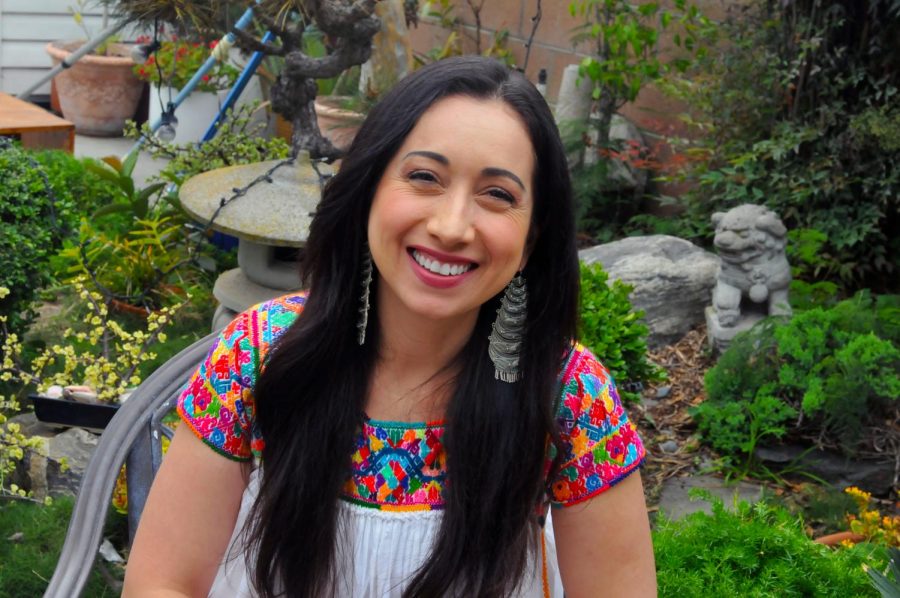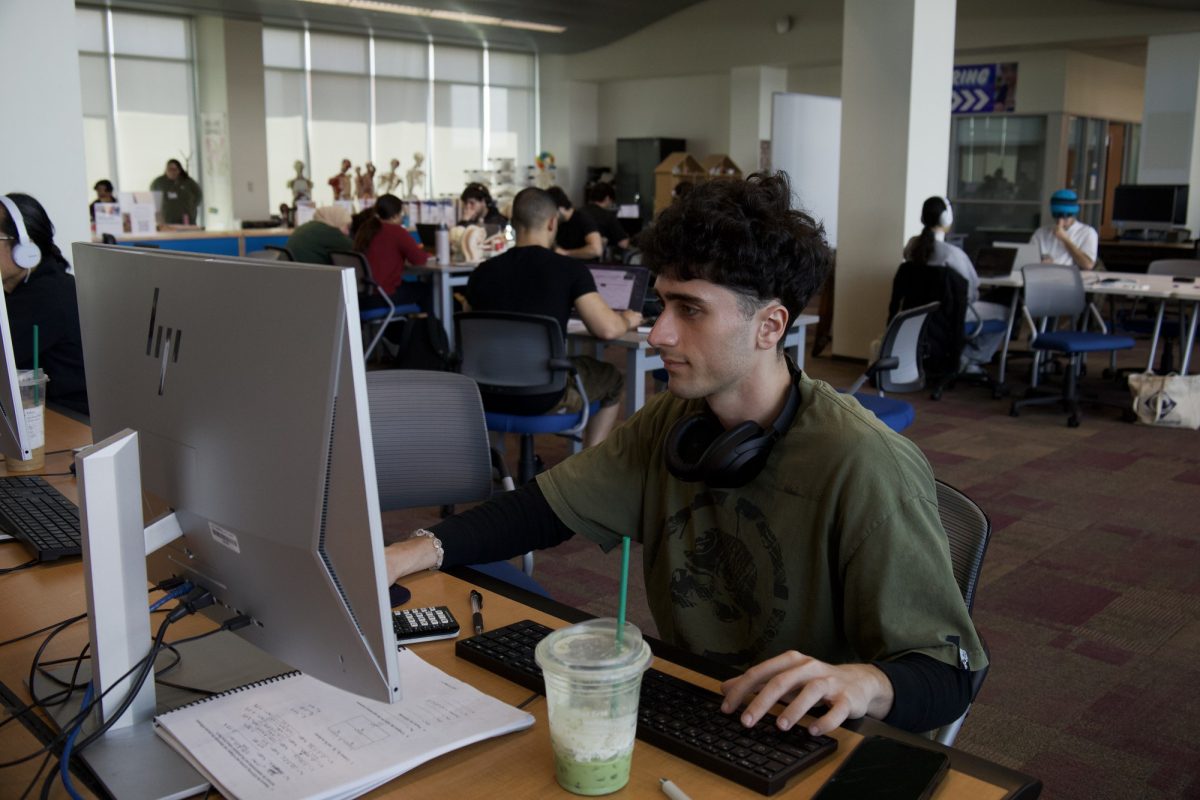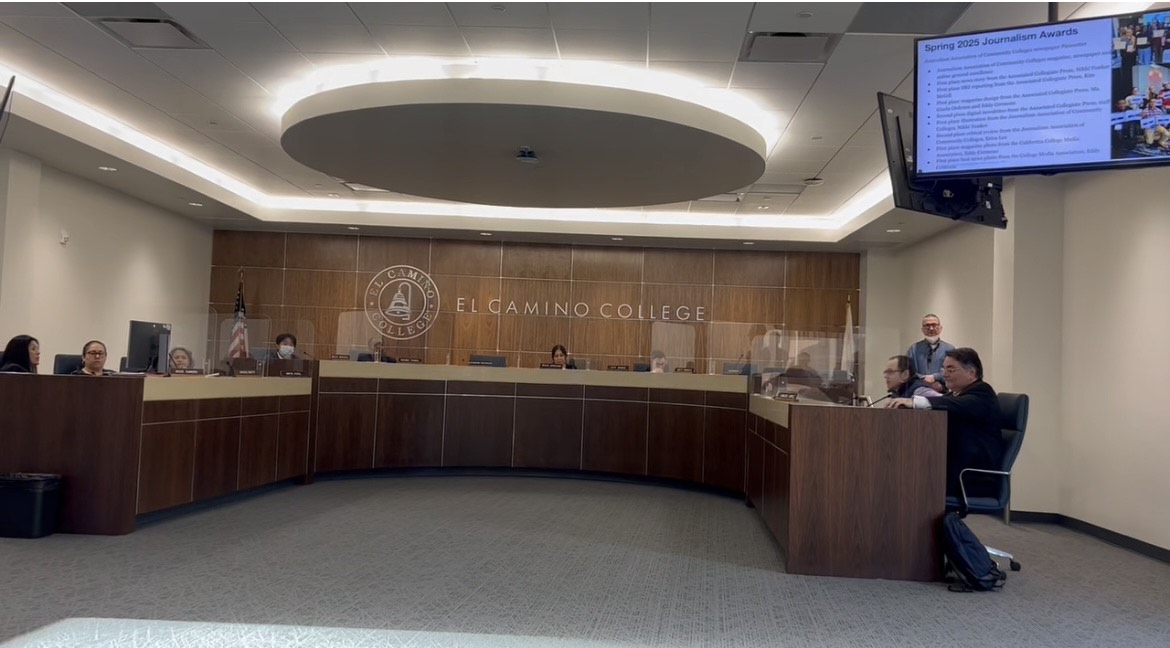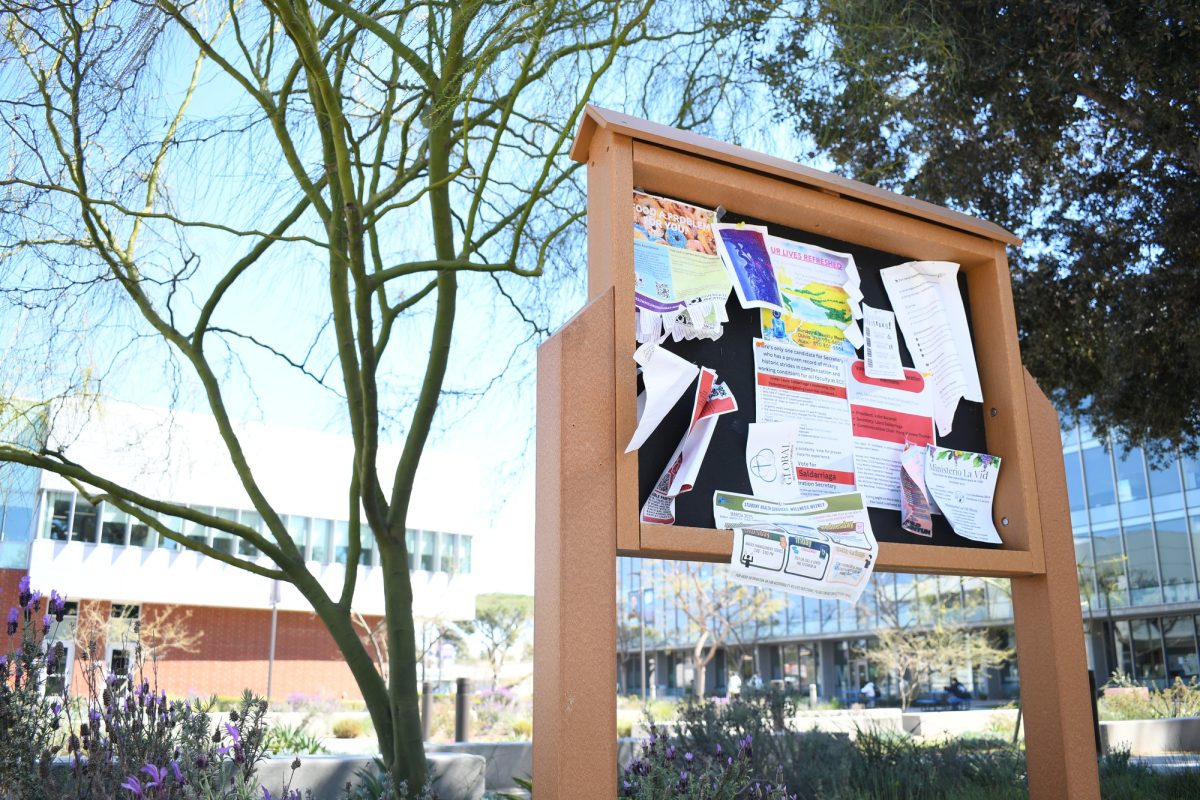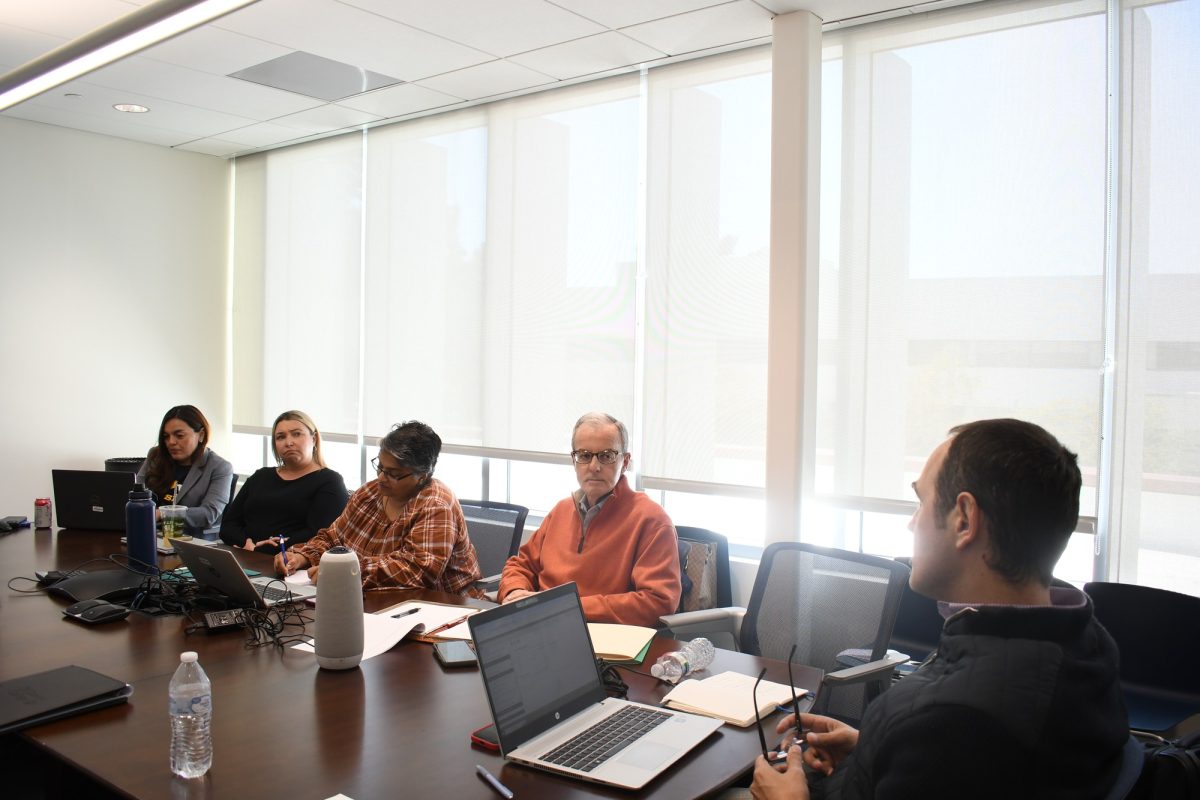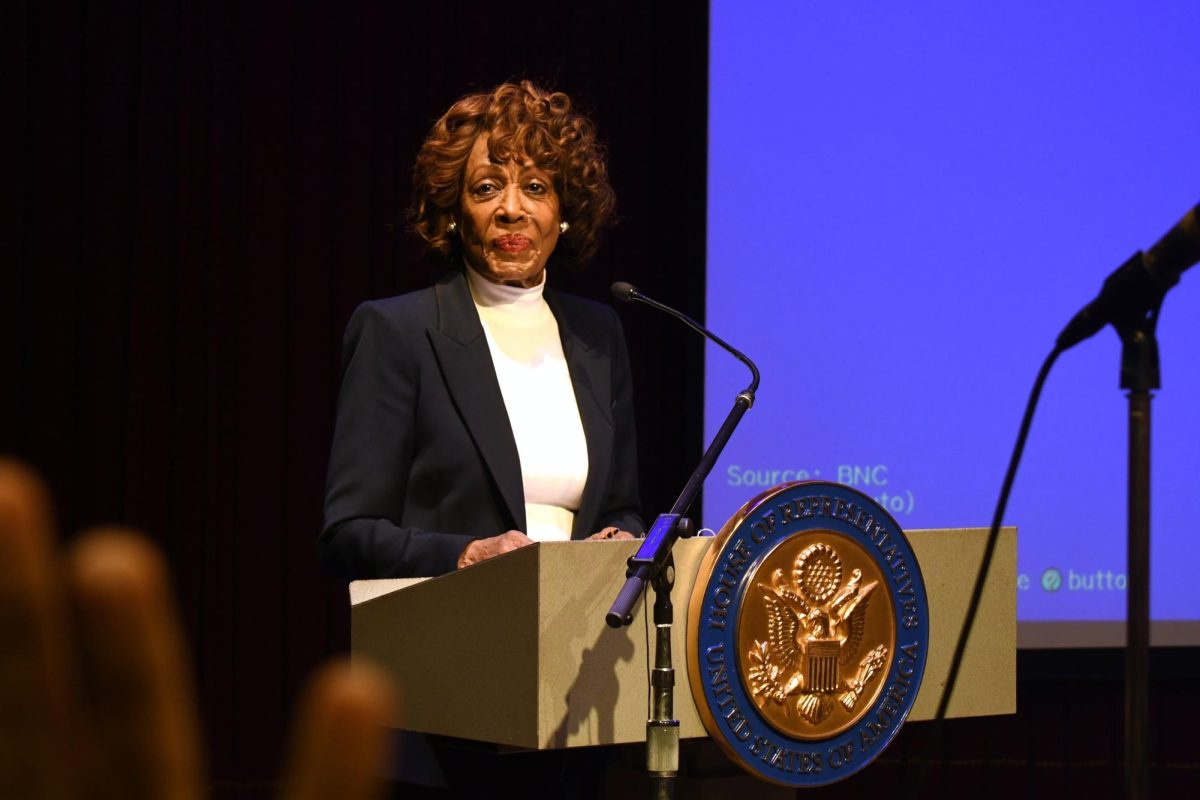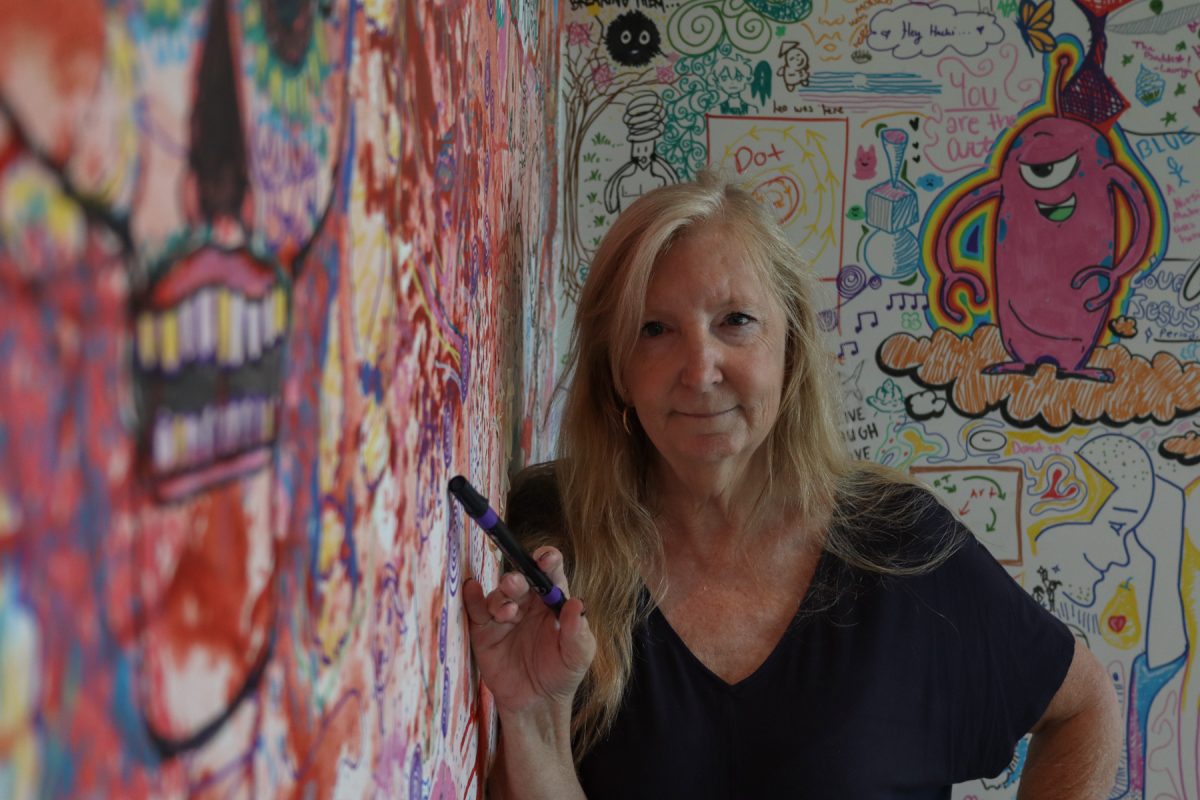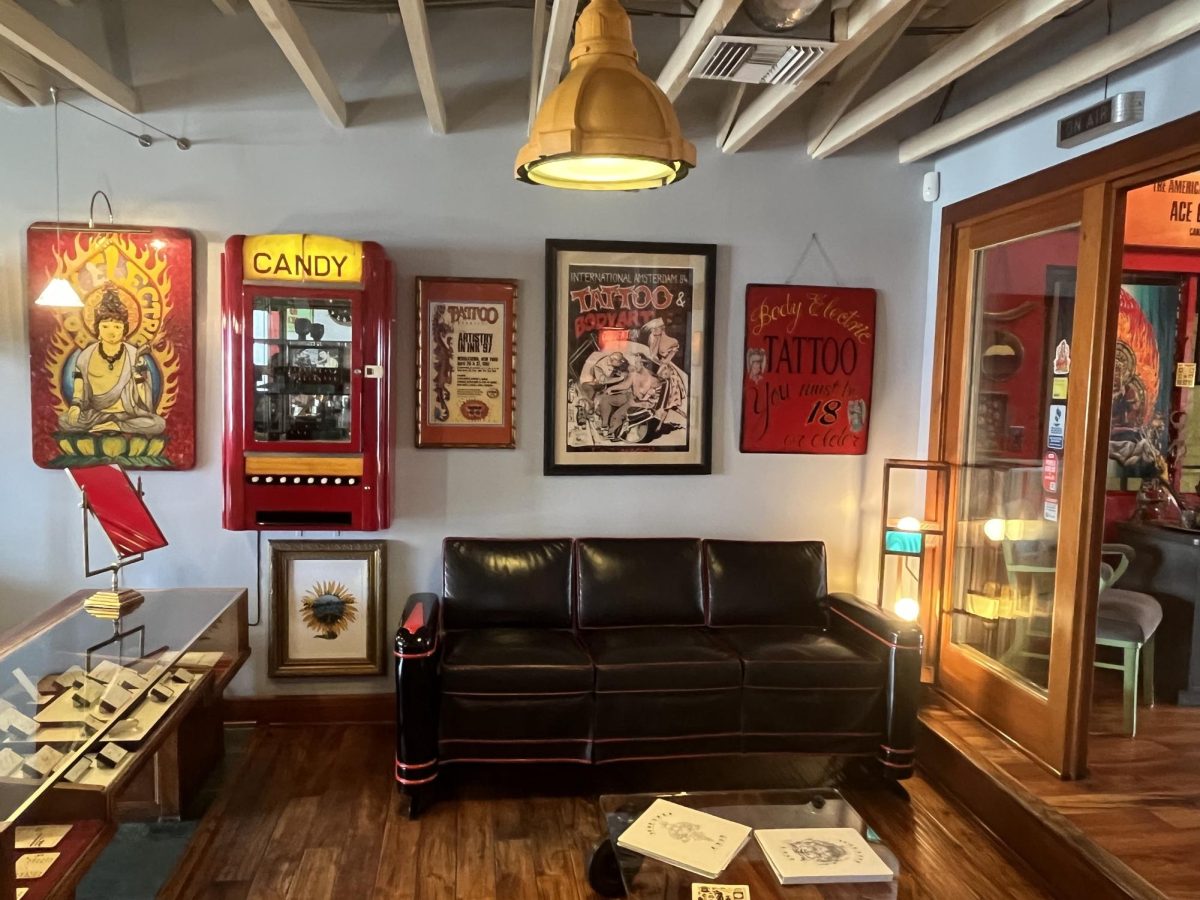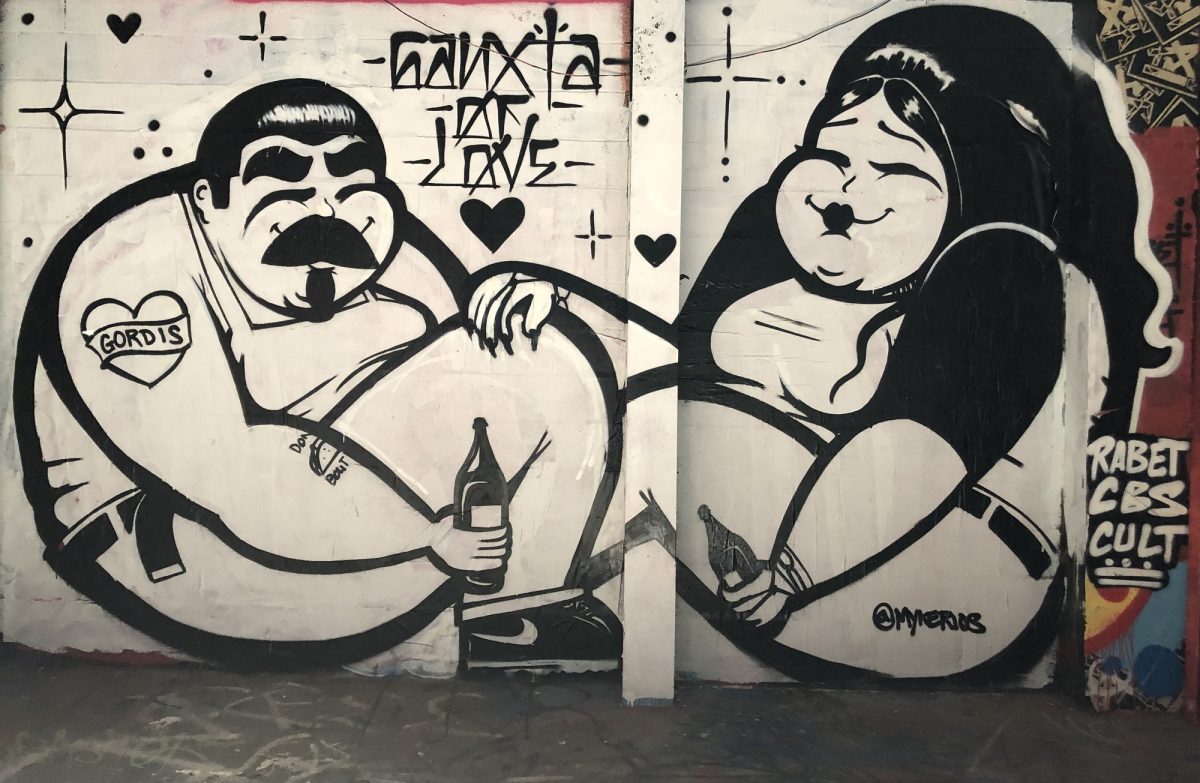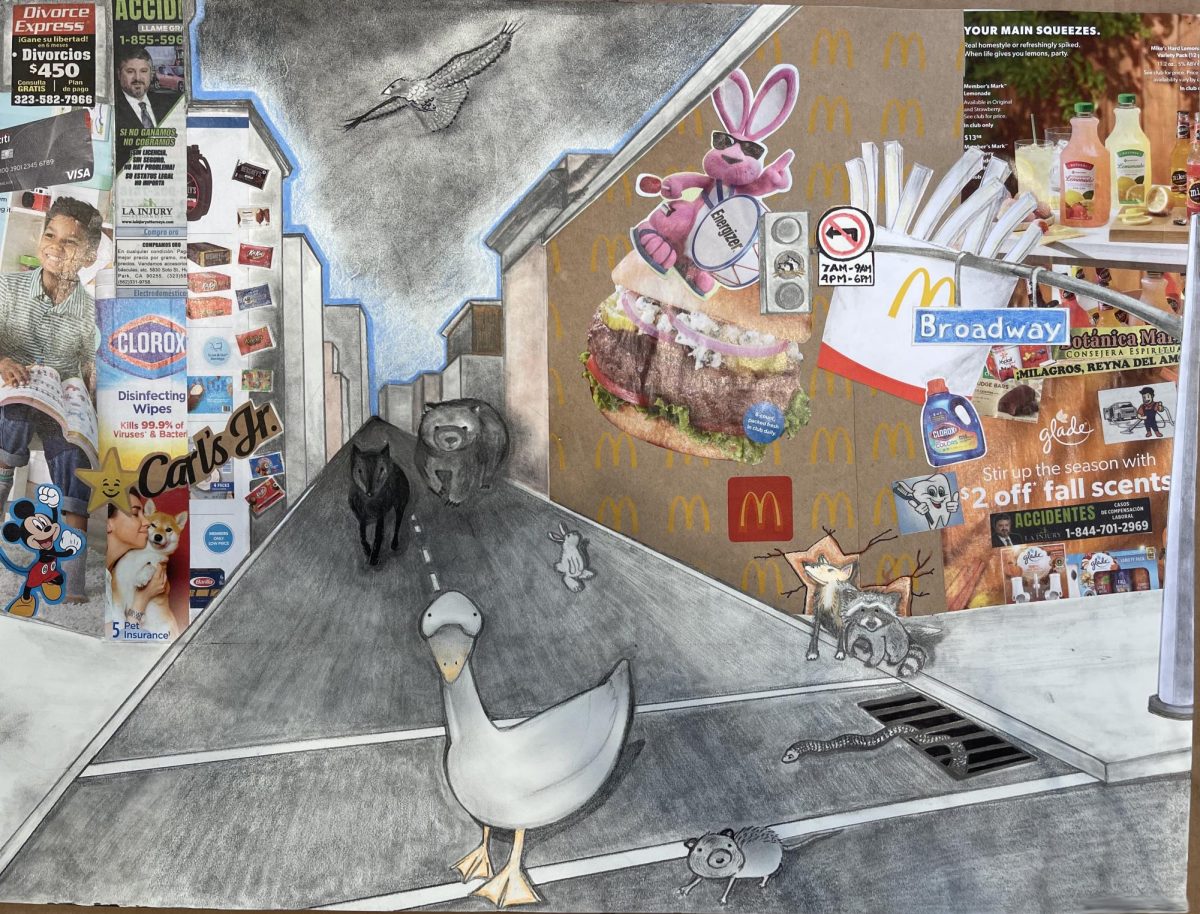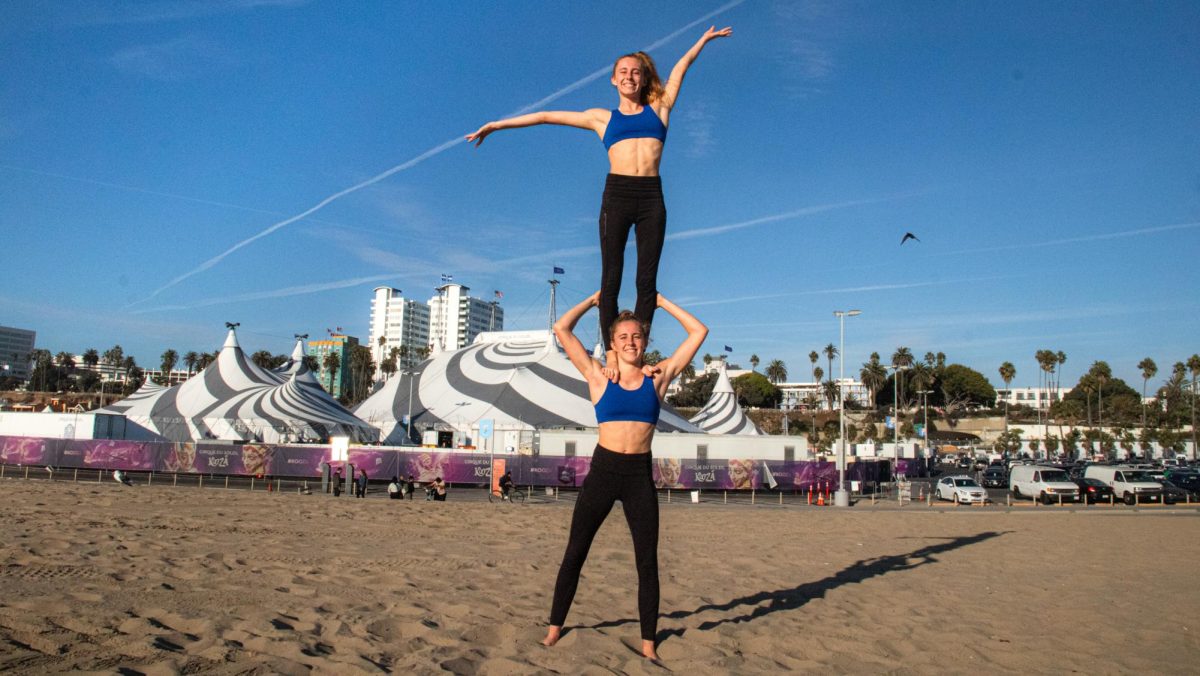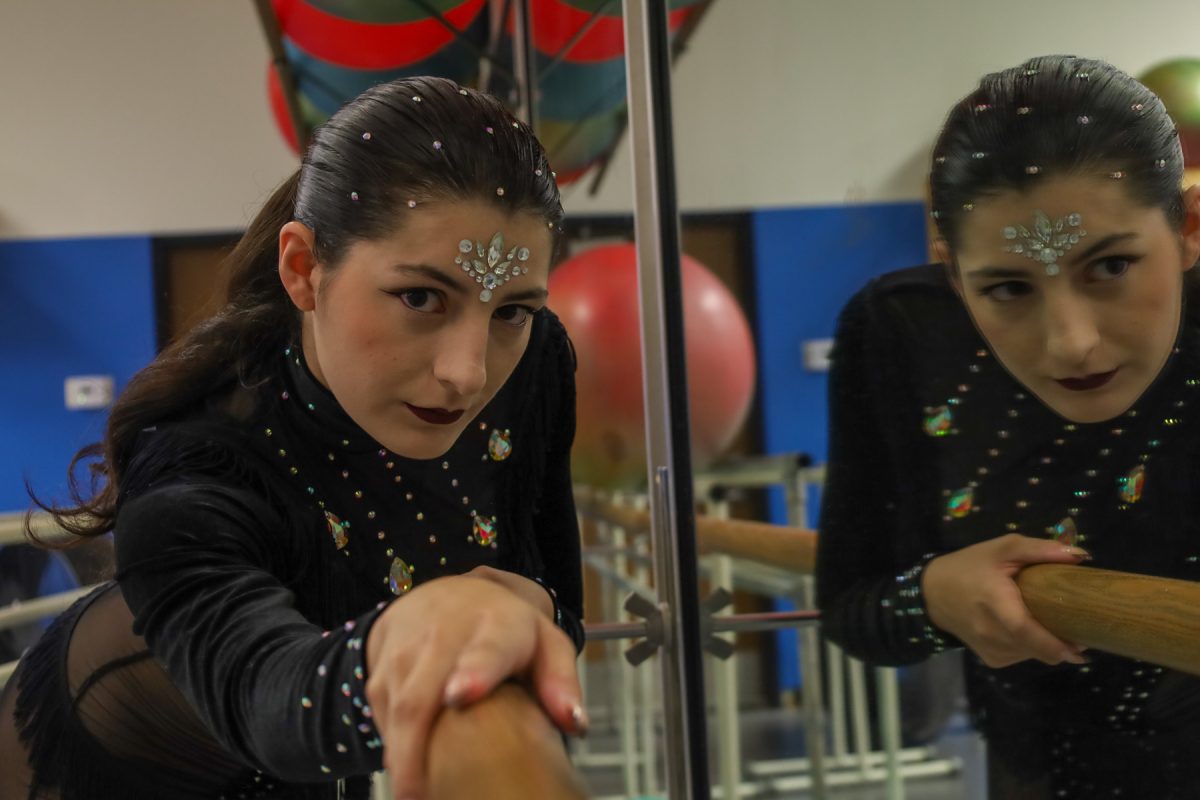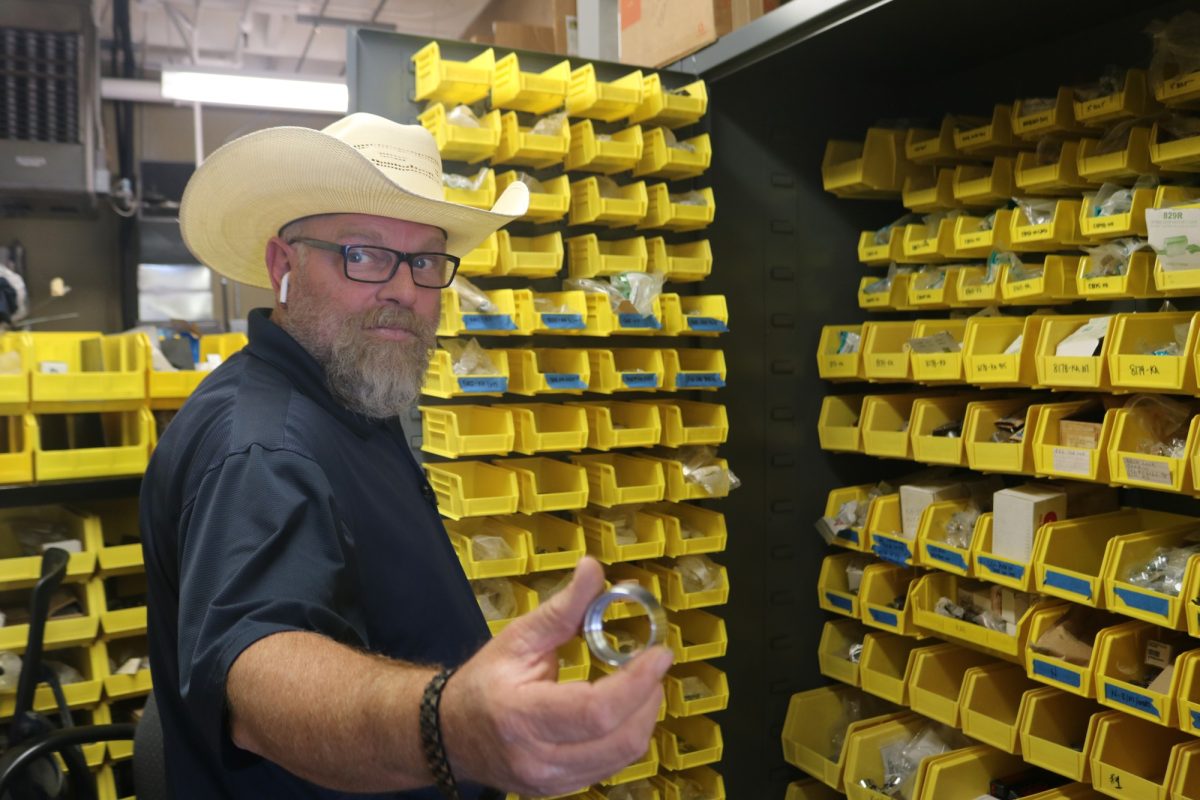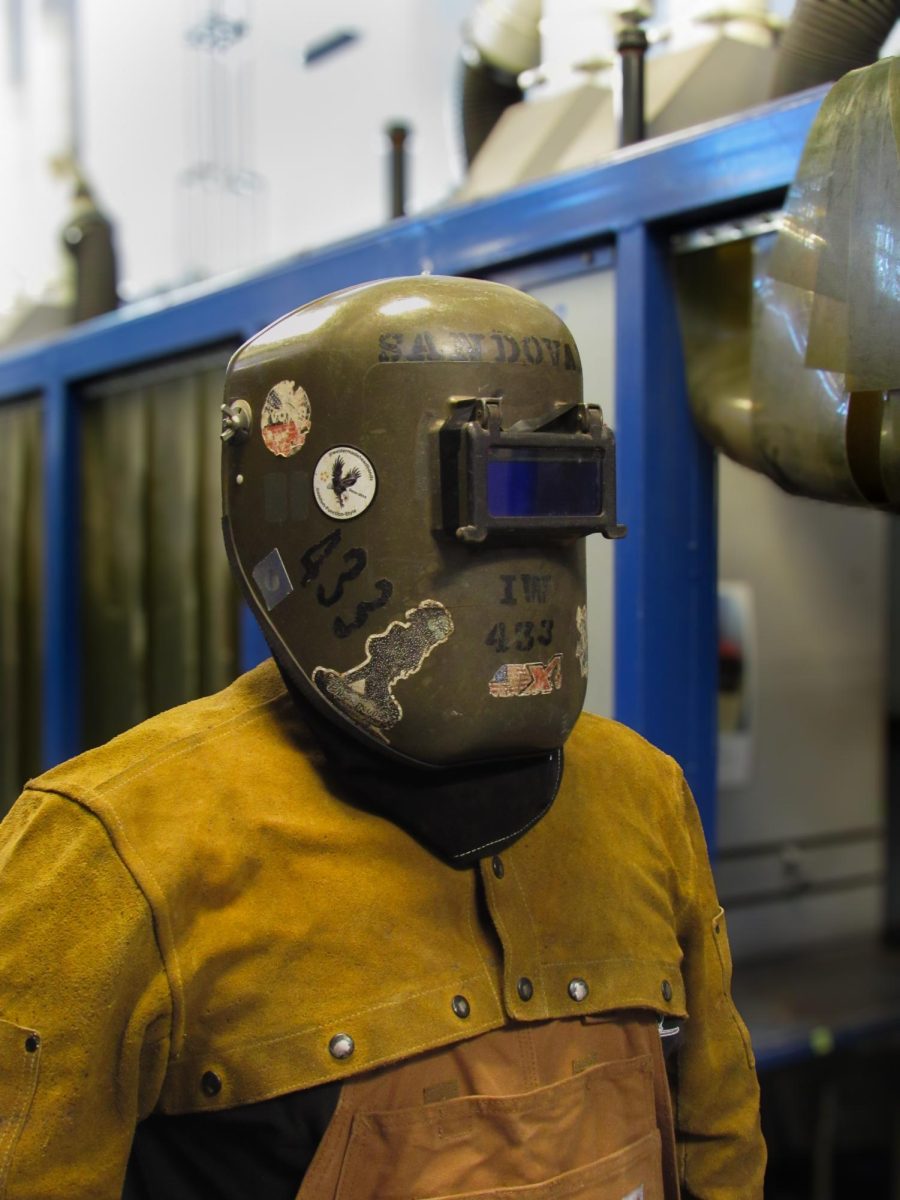After waiting about a year for the studio to reopen due to COVID-19, Argelia Andrade was more than ready to teach students again.
Dancing folklorico is a way Argelia is able to connect back to her heritage while taking a lead to help her community connect to their roots as well at the appropriately named dance studio Nuestras Raíces (Our Roots).
Acknowledging her roots and family is what made her who she is today.
Argelia, 42, was born in Los Altos, Mexico. She is a Spanish professor at El Camino College and completed her doctorate in philosophy and Hispanic languages and literatures at UCLA. She’s the founder of Nuestras Raíces and has organized folklorico events at the college.
She grew up with both her parents and five siblings. Her mother is from Los Altos, Mexico and while her father’s side is also Mexican, they are from the United States.
At 10 years old she moved to California and was raised in Gardena, the place she now calls home. Her family has always had a binational culture, she says. They are proudly Mexican but proudly Mexican from both sides of the border.
As Argelia reflects back on her mom’s life and realizes they didn’t have the same opportunities, she feels as though things have changed for women, especially Latina women.
Growing up in Mexico, Argelia’s mother Celina Gonzalez didn’t make it to high school but it wasn’t because she didn’t want to attend school anymore. In the small pueblo in which she was raised there was no more school beyond what she had achieved.
“I only attended up to the eighth grade,” Celina says in Spanish. “I lived in Mexico at that time and the women didn’t really attend school. We didn’t have much opportunity.”
If people wanted to continue onto high school or college, they had to go to the big city. But in the 1950s, the women would not go into the big city alone to those type of things. Opportunities were very different for Celina than they were for Argelia at her age.
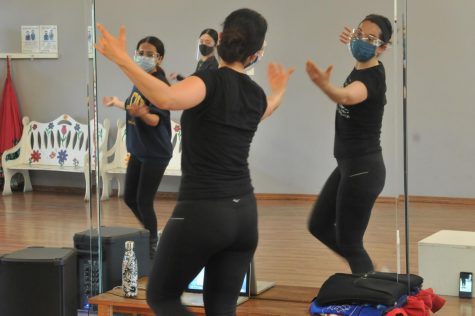
“Knowing that made me really proud because I stand on her shoulders,” Argelia says. “She did this for me and now I have the highest degree of education in the world.”
Celina worked for a while and then decided to dedicate time at home for her children.
It was a traditional life for Argelia’s parents, but their expectation was never that their girls would grow up to do the same as their mother had. They didn’t want to limit their children.
“My husband and I always motivated them,” Celina says in Spanish. “In our household we always told them the most important thing was to prepare themselves so they could have a better future than us [Celina and her husband].”
Argelia’s dad, Jorge Andrade, who died 10 years ago, also played a great role in her life and academic achievements.
Argelia came from a family where everyone was similar. Their differences were honored but she was never told what she couldn’t do school or sports because of them. Her family always encouraged her to do things the same as others and there was never talk about what girls can or can’t do.
“We’ve always motivated them to do what they want to do,” Celina says in Spanish.
In particular, when it came to getting an education and a career, it was never expected that Argelia would marry and then buy a house. She was taught that whatever she wanted, she had to get it herself.
“It was clear to me that I was raised very differently than other women during my childhood,” Argelia says. “Nowadays, parents are younger and more open minded, but certainly, in the ‘80s when I was growing up, it wasn’t standard for people to be so open-minded about what girls could or couldn’t do.”
The first feminist she met was her dad, because he never thought girls couldn’t do what the boys could do. Yet, it was the women in Argelia’s life who paved the way for her and now she is able to say she is the only woman in her family who has either a master’s or a doctorate degree.
Argelia says a role model is defined by their character.
“They could have a completely different life, like my mom,” Argelia says. “She had a cooking, cleaning and washing clothes kind of life but she had a hard-working character.”
Growing up, Argelia went to a small high school named California Academy of Math and Science High School, located in Carson. She graduated in 1996 and attended University of California, Los Angeles (UCLA) that fall.
She began at UCLA in 1996 and finished in 2000 with her bachelor degree. She then went on to complete her masters by 2003 and took some time off before finishing her Ph.D. in 2012.
Argelia’s doctorate work was finished by 2010, but her adviser was diagnosed with cancer so she had to wait for her to get better within those two years before earning her degree.
This created a pause in Argelia’s education and was the reason it took her a bit longer to finish school.
While attending UCLA , she accomplished other things like working a full time job, getting married and raising her son. She also spent time taking care of her father before he died.
After 16 years, Argelia is able to say she is the first woman to have a master’s and doctorate in her family because of her mother’s hard work and discipline.
While she attended UCLA, she worked at Santa Monica College. That is where she fell in love with working at community colleges. Once she finished UCLA, she received an offer to teach there but she also got an offer from Los Angeles Valley College.
Argelia chose to teach at Los Angeles Valley College rather than at UCLA because she liked the students better. She believed her calling was to teach students like her.
“There were a lot more brown students at community college than UCLA,” Argelia says.
Argelia says representation matters. One successful way to become an educated person of Latin descent is to see a teacher with that same ancestry. Based on her own experiences, she felt the students would be able to see themselves in her story and relate to her.
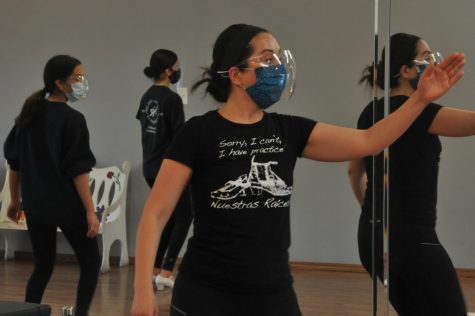
“I felt that I could do more for my gente at the community college than at UCLA,” Argelia says.
She then began teaching at El Camino College, where she plans to retire. Argelia works in the Humanities Division at El Camino College, where she’s taught Spanish since 2014.
Having good professors is something that helped her find her major. She had a really good professor who was a mentor and friend throughout her whole undergraduate, master’s and Ph.D programs.
“She was a linguist and she was a Mexicana immigrant with a really thick accent,” Argelia says. “I really loved that about her because she was really proud and a great scholar at UCLA. She was very respected and very prolific.”
Having her professor around inspired Argelia to learn linguistics and to learn about her home and heritage language. She believes that having that gift to learn more about her culture is something beyond teaching which inspired her to want to work at ECC.
Argelia teaches Spanish classes at every level but says she is more alive when she is teaching the Spanish for native speakers classes. She also teaches Spanish 4, 5, and 6 which is culture and literature. Those are the classes that she gets really excited about teaching.
Her decision to teach Spanish came from the experience of having a strong female role model who spoke like her, ate like her and who had a common culture with her. The ability to connect with her community is another reason why she teaches Spanish.
Besides connecting with her community through language, she also connects through Folklorico, a traditional dance from Mexico.
Argelia has been dancing folklorico all her life. She began in Mexico and continued here in the U.S.
Before Nuestras Raíces, Argelia used to dance in a Mexican group through Parks and Recreation in the city of Gardena, along with her siblings. It was a small group but they danced there for years.
Her teacher then got married and decided to stop teaching, which is when the moms of the kids in the group asked Argelia to continue the group in their teacher’s absence. She agreed and led the girls.
Argelia thought it would be a good summer hobby before starting school at UCLA in the fall.
Once it was time for Argelia to start her fall semester at UCLA, she was ready to say goodbye to the group but the moms refused to let her go because the girls loved Argelia.
“For every excuse I gave them, they found a solution,” Argelia says. “These moms, our mujeres are great advocates for their children’s education and opportunity.”
They didn’t have a place to practice anymore but the moms found St. Anthony’s Church.
Argelia would bring up that they didn’t have shoes to practice in so the moms went to Tijuana to get them. She also brought up that they didn’t have any skirts so all the moms made them.
Argelia eventually gave in, and that’s how Nuestras Raíces began.
It started as just 10 little girls and her playing around. It was a grassroots organization. The moms trusted Argelia and she is grateful they did.
Argelia’s sister, Darlene Andrade who is one of the co-founding members, is a dance teacher at Nuestras Raíces and was one of those 10 little girls, says the non formal group was founded in 1996.
Now, 25 years later, they turned into a non-profit organization based in Gardena and located right on Gardena Boulevard.
According to the Nuestras Raíces website, their vision is to educate members and their community about Mexico. Its other purpose is to inspire members to become community leaders by obtaining a college education, and to create a space of social justice where education and art intersect.
Darelene has been dancing since the age of 8. Since 2014, she danced in her last show but she has currently been teaching. The group also opened doors and gave Darlene academic opportunities.
“[The group] has helped me immensely because I was able to go to UCLA from Gardena high school. I don’t think if I had the support from the group and from my sister then I don’t know if that would’ve been possible,” Darlene says.
Elizabeth Martinez met Argelia when she joined the small group of girls Argelia taught folklorico back at St. Anthony’s Church. Elizabeth says she first joined the group when she was in middle school. Now, she is currently one of the dance teachers at Nuestras Raíces.
“I think that her [Argelia] love for the culture and education is right up front,” Elizabeth says. “For the most part, she not only taught us the dances and a little bit of our story but she also focused her energy on making sure what we needed to do in school to be successful.”
Argelia was very involved in guiding the girls to make sure they were doing well in school. She used to ask for their report cards and review their grades. And if they weren’t doing too well, Argelia would check in with them to see what they need to do to bring their grades up.
One way she would help her students was by finding outside resources such as tutors to help them with their school work. This grew into her helping more people and building the academic program they have now within the dance group.
“I think she [Argelia] led by example,” Elizabeth says.
Being in Nuestras Raíces had a great academic impact on her.
Elizabeth says she went to UCLA because of Argelia’s guidance. Argelia was one of the main people that helped guide Elizabeth’s career path as she is now a high school counselor. She wanted to do what Argelia did for her which was help others.
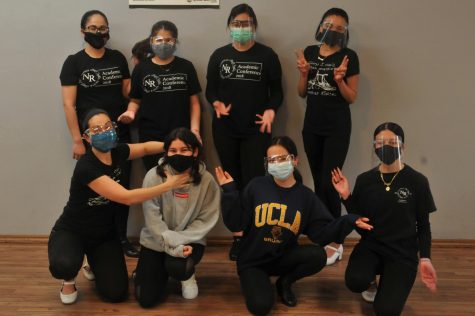
Pictured in this photo from left to right (bottom): Argelia, Kasandra, Amanda, and Michelle. On the top (left to right): Veronica, Julia, Aurora, and Vanessa. (Waller Jay Jr./ The Union)
Nuestras Raíces is not just a Mexican folklorico dance group, they are a program. The students get to choose between taking music or dance classes. Due to the pandemic, they have not brought back music classes yet.
Everyone enrolled in dance is enrolled in the mandatory academic program as well. Starting from middle school, they all have to attend an academic conference which is once a year in the month of October.
Throughout the year, they also have workshops on financial aid, personal statements for college applications, workshops on Deferred Action for Childhood Arrivals and more.
While students are learning folklorico, learning about their culture and taking pride in who they are, they are also simultaneously following an educational pipeline that may eventually lead them to a four-year university and graduate school.
It’s a dream Argelia has for all of their dancers. The group is more than a hobby for her, it’s her family. She protects it, loves it and nurtures it as if the dancers were her family members.
Argelia says it’s all done by volunteer work and no one gets paid, including the board. The only people who get paid are the women who clean and the women who sew.
She spends a minimum of 10 hours every week doing things for the organization. When they are getting ready for a show she can spend up to 40 hours working.
Through folklorico she feels connected to her culture, something she felt was underrepresented at UCLA, where she was also part of a folklorico dancing group.
“It was nice to be with people who spoke spanglish like I did, danced folklorico, liked mariachi music, rancheras, hip pop, salsa or bachata,” Argelia says. “It was nice to be with people like me.”


